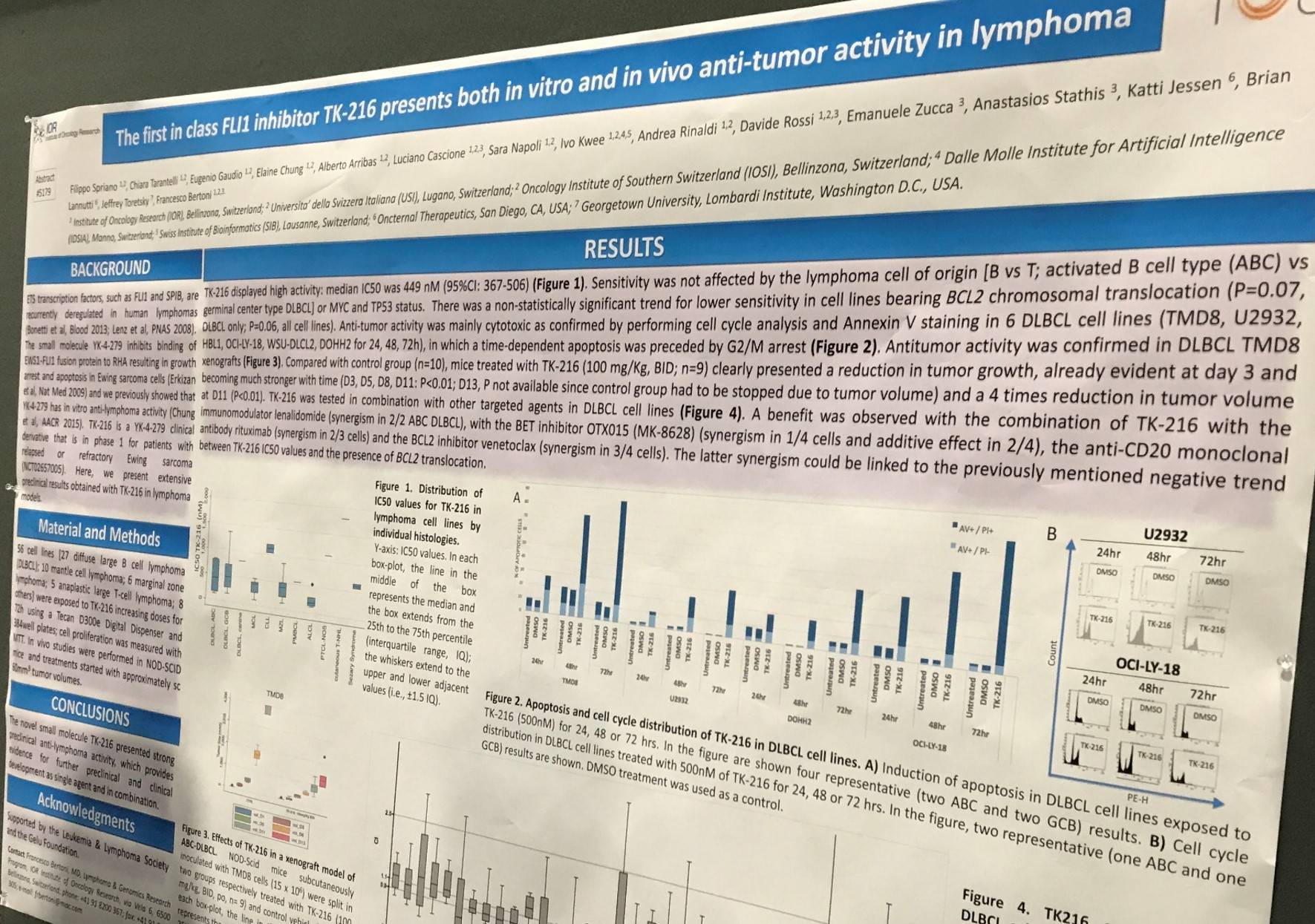All content on this site is intended for healthcare professionals only. By acknowledging this message and accessing the information on this website you are confirming that you are a Healthcare Professional. If you are a patient or carer, please visit the Lymphoma Coalition.
The lym Hub website uses a third-party service provided by Google that dynamically translates web content. Translations are machine generated, so may not be an exact or complete translation, and the lym Hub cannot guarantee the accuracy of translated content. The lym and its employees will not be liable for any direct, indirect, or consequential damages (even if foreseeable) resulting from use of the Google Translate feature. For further support with Google Translate, visit Google Translate Help.
The Lymphoma & CLL Hub is an independent medical education platform, sponsored by AbbVie, BeOne Medicines, Johnson & Johnson, Miltenyi Biomedicine, Roche, Sobi and Thermo Fisher Scientific and supported through educational grants from Bristol Myers Squibb, Incyte, and Lilly. The funders are allowed no direct influence on our content. The levels of sponsorship listed are reflective of the amount of funding given. View funders.
Now you can support HCPs in making informed decisions for their patients
Your contribution helps us continuously deliver expertly curated content to HCPs worldwide. You will also have the opportunity to make a content suggestion for consideration and receive updates on the impact contributions are making to our content.
Find out more
Create an account and access these new features:
Bookmark content to read later
Select your specific areas of interest
View lymphoma & CLL content recommended for you
AACR 2017 | Poster 5179/22 – TK-216, the first in class FLI1 inhibitor, demonstrates in vivo and in vitro anti-tumor activity in Lymphoma
At the American Association for Cancer Research (AACR) annual meeting in Washington, DC, USA, on Wednesday 5th April, a poster session titled “Oncogenes and Tumor Suppressors as Therapeutic Targets” took place.
One of the posters on display (5179 / 22) was titled “The first in class FLI1 inhibitor TK-216 presents both in vitro and in vivo anti-tumor activity in lymphoma” by Filippo Spriano from the Institute of Oncology Research, Bellinzona, Switzerland, and colleagues.
This poster presented extensive preclinical results obtained with TK-216 in in vitro and in vivo lymphoma models. TK-216 is a clinical derivative of YK-4-279, which is a small molecule that inhibits the EWS1-FLI1 fusion protein binding to RHA resulting in reduced growth and increased apoptosis in Ewing sarcoma cells.
In total, in vitro studies were carried out using 56 cell lines (n = 27 DLBCL; n = 10 MCL; n = 6 MZL; n = 5 T-cell ALCL; n = 8 others), which were given TK-216 at increasing doses for 72 hours. DLBCL TMD8 xenografts in NOD-SCID mice were used for the in vivo studies and treatment was administered at approximately SC 60mm3 tumor volumes. Lastly, using DLBCL cell lines, TK-216 was tested in combination with other targeted agents.
Key Highlights:
- TK-216 displayed high activity: median IC50 = 449nM (95%CI, 367–506)
- Sensitivity was not affected by cell of origin (B vs T; ABC vs GC DLBCL) or MYC and TP53 status
- Non-statistically significant trend reported for lower sensitivity in cell lines harboring BCL2 chromosomal translocation (P = 0.07, DLBCL only; P = 0.06, all cell lines)
- Cell cycle analysis found that anti-tumor activity was mainly cytotoxic; time-dependent apoptosis came after G2/M arrest
- In vivo, compared with control group (n = 10), administration of TK-216 (100mg/Kg, BID; n = 9) reduced tumor growth, observed as early as day 3 and becoming much stronger with time (D3, D5, D8, D11: P < 0.01)
- A 4-fold reduction in tumor volume was reported at D11 (P < 0.01)
- Benefit was reported when combining TK-216 with:
- Lenalidomide: synergism in 2/2 ABC DLBCL
- OTX015 (MK-8628): synergism in 2/4 cells and additive effect in 1/4
- Rituximab: synergism in 2/3 cells
- Venetoclax: synergism in 3/4 cells (could be related to the negative trend between TK-216 IC50 values and the presence of BCL2 translocation)
In conclusion, TK-216 demonstrated strong preclinical anti-tumor activity in Lymphoma, providing a rationale for further investigation in preclinical and clinical settings as monotherapy and in combination regimens.

References

